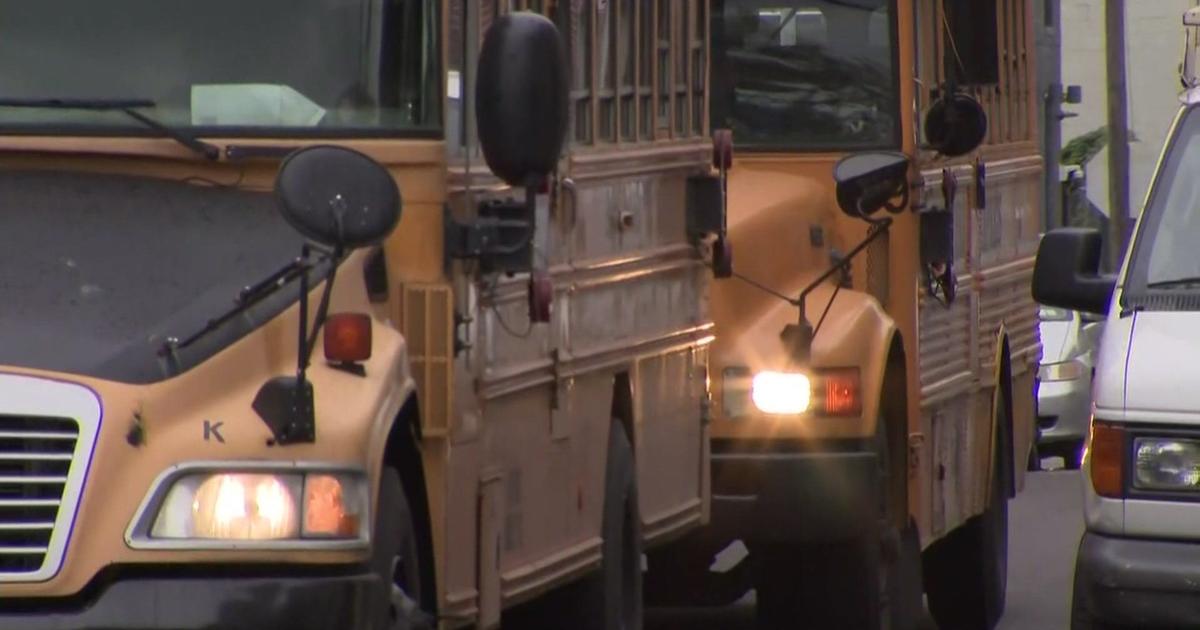New Jersey Senate Committee Votes For Minimum Wage Increase
TRENTON, N.J. (CBSNewYork/AP) -- The New Jersey State Senate Budget Committee on Monday voted to increase the state's minimum wage by $1.25 per hour.
The vote followed about two hours of debate over whether a minimum wage increase would spur New Jersey's sluggish economy or kill precious jobs.
New Jersey's minimum wage, which has been $7.25 per hour since 2010, is the same as the federal minimum and that of 23 other states. A minimum wage earner who works 40 hours grosses $290 per week.
If the wage had been indexed annually since the state began statutorily setting the rate in 1968, New Jersey's minimum wage today would be $9.20, according to a calculation provided by Senate Democrats earlier this year.
Of the states that index their minimum wage, all have wage floors equal to or greater than New Jersey's. The highest is Washington state, where the minimum wage is $8.67 per hour.
The New Jersey wage increase bill has been a high priority for legislative Democrats this year. The Assembly passed a bill in May raising the wage to $8.50 per hour and making yearly adjustments.
But the measure stalled in the Democrat-led Senate when Senate President Steve Sweeney (D-Gloucester, Cumberland, Salem) decided on an alternate route: Letting voters decide in a ballot question whether to hike the wage.
Sweeney said he changed course because Gov. Chris Christie, a Republican, indicated he would not sign a measure that included automatic annual wage adjustments.
But Sweeney and Assembly Speaker Sheila Oliver (D-East Orange) apparently reached agreement to send the wage bill to Christie's desk. Sweeney said the Legislature would pursue voter approval if the governor vetoes or conditionally vetoes the Democrats' bill.
"We are giving the governor the opportunity to do the right thing," Sweeney said Monday as the first witness to testify. "If he doesn't, make no mistake we have another course."
Oliver stood with workers and wage-hike advocates earlier in the day, saying she wanted to give the state's lowest-paid employees something to be thankful for this Thanksgiving -- a raise.
"Having a minimum wage that accurately reflects the state's economic realities is common sense, but also an essential economic stimulus tool that will have an immediate positive effect," said Oliver, the sponsor of the Assembly bill.
The debate was essentially a partisan one, with Democrats arguing that the working poor cannot live on a gross salary of $220 per week for 40 hours work, and Republicans, while agreeing that the wage is low, countering that the extra labor costs will crush some businesses and lead to layoffs.
Senate Democrats quashed a Republican-sponsored amendment that would have delayed the increase and cancelled automatic yearly adjustments.
Sen. Joe Pennacchio (R-Pine Brook) of Morris County asked that the increase be phased in over three years, but his amendment failed 7-5 in a party-line vote.
Proponents of raising the wage included Elpidia Gomez, a temporary worker who through a Spanish translator told lawmakers that she lines up early each day for a chance at a day's work that sometimes comes and other times does not. She does not get paid for holidays or vacations and gets no health benefits, even when she works the equivalent of full-time.
"I come here asking that the state of New Jersey to do something to help workers like us to improve our lives," she told the panel.
Opponents to raising the wage were varied. They included Sen. Jennifer Beck (R-Red Bank) of Monmouth County, who said she could not support a minimum wage increase now -- when it would hit business owners trying to recover from Superstorm Sandy; Joe Marino, a representative of Sun Valley Orchards, a produce farm in Swedesboro, who said the bill would hurt agriculture, which relies on temporary, seasonal workers, for whom housing and transportation are part of the labor costs; and Steve Lonegan, an unsuccessful gubernatorial candidate who runs the state chapter of the national policy organization Americans for Prosperity. He said failed economic policies like raising the minimum wage destroys jobs for low wage earners, especially teenagers.
The vote was 7-6. Republicans on the panel all voted no, and Democrats all voted yes, except Sen. Jeff Van Drew (D-Cape May Court House), who also voted no.
The bill heads to the full Senate.
Are you in favor of a minimum wage increase? Why or why not? Let us know in the comments section below...
(TM and Copyright 2012 CBS Radio Inc. and its relevant subsidiaries. CBS RADIO and EYE Logo TM and Copyright 2012 CBS Broadcasting Inc. Used under license. All Rights Reserved. This material may not be published, broadcast, rewritten, or redistributed. The Associated Press contributed to this report.)



